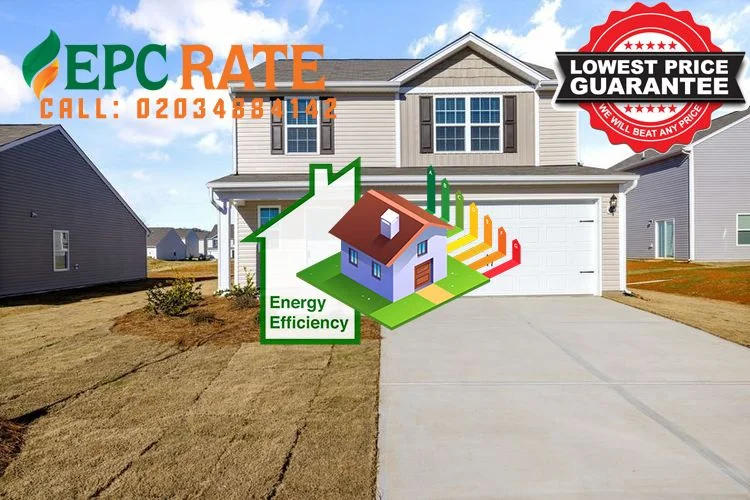Energy efficiency within EPCs are graded between A and G – A being the highest level of efficiency and G being the lowest. In most homes, an energy performance certificate rating of D is most common.

What is an EPC rating?
A property’s energy efficiency is evaluated by its EPC rating, to put it simply. They are usually used by prospective buyers or tenants to rapidly estimate the cost of their energy bills in a new home or apartment.
In England, Wales, and Northern Ireland, “Domestic Energy Assessors,” sometimes known as EPC assessors, do EPCs (in Scotland, they must be government-approved organisations). Before creating the EPC, the EPC assessor will do a quick survey of your house. The home is then ranked from A to G on a color-coded system, with A being the most efficient and having the lowest fuel costs.
The EPC rating of your property will depends on:
- energy consumption per square metre
- The quantity of emissions of carbon dioxide (given in tonnes per year)
Before you may sell or rent your home, you must obtain a new EPC if your current one is older than the EPC’s 10-year validity period.
They are useful for evaluating possible future houses when comparing them on paper because anybody can get a house’s EPC online for free via the EPC registry. A genuine EPC must be provided by the homeowner or landlord; the potential purchasers shouldn’t be required to pay for one.
But it’s a little more complicated than that. EPCs are a helpful tool for homeowners who want to increase the comfort of their house overall while reducing operating costs and improving efficiency.
The benefits of a high EPC rating
Except for listed structures, every home must have a current EPC in order to be sold. When prospective purchasers are forced to choose between numerous homes, the EPC rating makes it much simpler to compare the properties. Nearly everyone would choose the high-scoring, A-rated, green property over the low-scoring, G-rated, red one, even at first sight.
Fortunately, the Energy Performance Certificate outlines what may be done to raise your home’s EPC rating if the latter is the case. Therefore, making your home more energy efficient today will benefit you when it comes time to sell.
It’s a good idea to conduct a fresh survey once you’ve made the revisions to account for these changes.
In order to rent out their homes for new leases or renewals as of April 2018, landlords in England and Wales are obliged by law to have an EPC rating of band E or above. EPCs are also necessary in order to qualify for government subsidies like the Renewable Heat Incentive (RHI).
How to Improve Your Energy Efficiency Rating
An EPC will outline several strategies for raising your rating and offer rough pricing. These upgrades will lower costs for you, prospective purchasers, and tenants. They will also aid in reducing the property’s environmental effect.
Typical suggestions include:
- Your floor, walls, loft, and roof all need insulation. Your energy expenses will go down since you will need less heating as a result of improved insulation.
- Double glazing: Windows with double glazing retain a lot more heat, requiring less energy.
- Solar panels may significantly raise the value of your property and create greener, more affordable electricity than more conventional ways.
- Low-energy lighting has the advantage of being an easy solution to lower energy costs without requiring structural changes.


